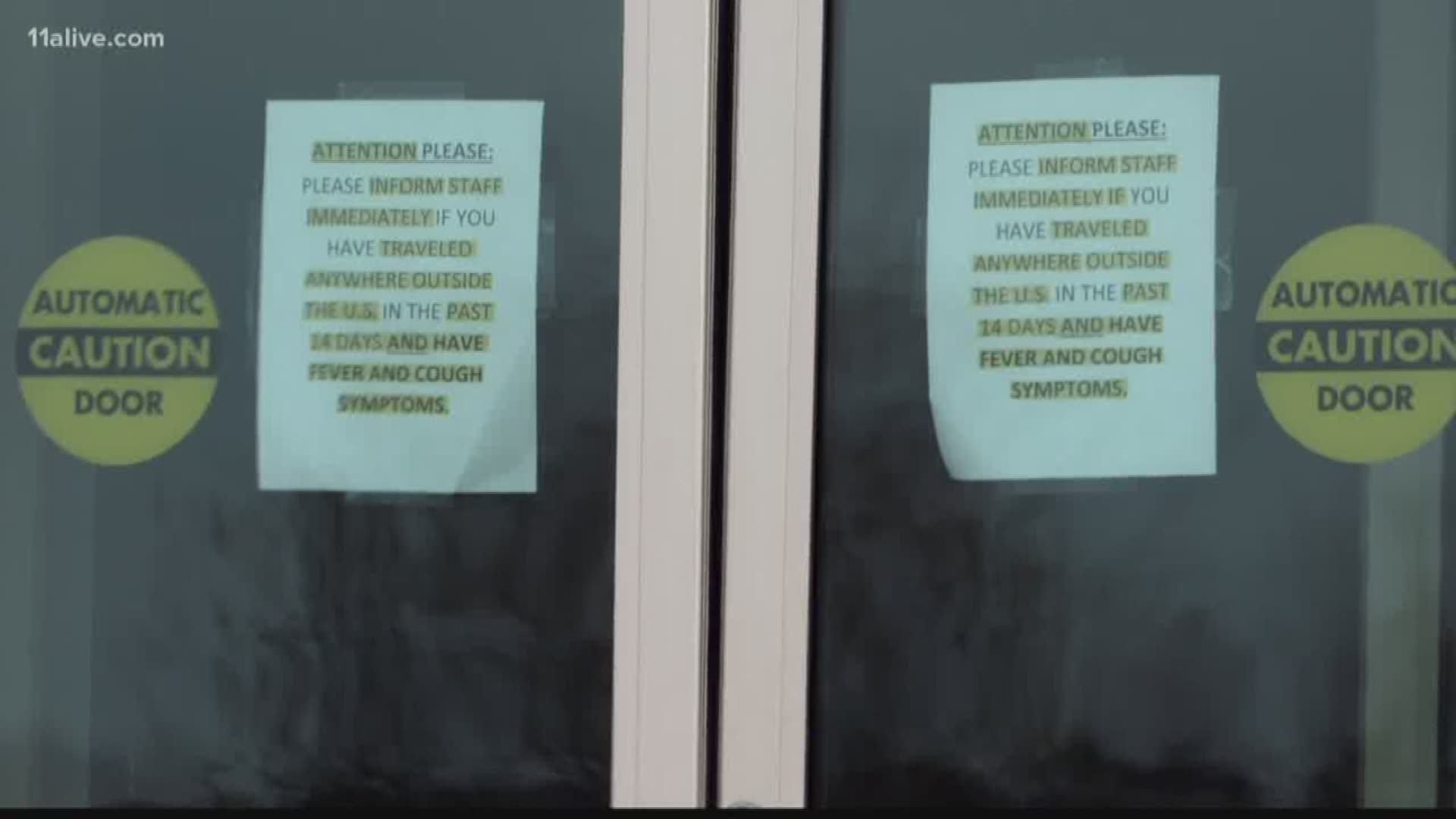ATLANTA — The number of cases of the new coronavirus is quickly climbing. One reason behind that - testing has been expanding in the United States.
Despite more available tests, however, people with symptoms and underlying conditions are still telling 11Alive that they are struggling to get swabbed for COVID-19.
Melisissa Spielholtz has been diagnosed with pneumonia. She is on the list of patients who can’t get tested for the coronavirus.
“You would qualify for the test, under the current protocol, right?” 11Alive’s Chief Investigator Brendan Keefe asked Spielholtz.
“I’ve had symptoms that are very textbook to what they say the symptoms are, and they’re not testing me, so how many of me are there out there?” she replied.
There are now signs posted outside of several doctor's offices that warn sick patients not to enter. Some of these signs even direct these people to call their state hotlines.
“You can’t get a human on the phone, it basically directs you back to your physician and your physician directs you to to call the hotline," Spielholtz vented. "It was an absolute circle.”
The reproductive rate of the COVID-19 virus, with minimal interventions, is expected to be around two. That means the average infected person can be expected to infect two more people.
This number is compounded. That means one person infects two people; two people infect four people; four people infect eight people; eight people infect 16 people; 16 people infect 32 people, and so forth. That means, if one infected person who doesn’t need medical attention stays out of the hospital, out from the doctor’s office, and stays home, they can keep themselves from infecting hundreds of people.
There are millions of people heeding the call to stay home. Some cities and states across the country are ordering their citizens to "shelter in place."
But while the shelter in place orders are helping quell the spread of the virus, the struggle to keep up testing is mounting.
Currently, the guidelines for testing are inconsistent. The decision to test is up to an individual's doctor, but there is no requirement that offices or facilities must offer coronavirus testing.
Spielholtz ultimately got an at-home swab kit, which a lab picked up in person. Self-test are not yet FDA approved, but some at-risk patients with symptoms say they’re left with no alternative.
Governor Kemp officially declared that testing in Georgia should be prioritized for the most-vulnerable patients, first responders, and health care providers themselves.

